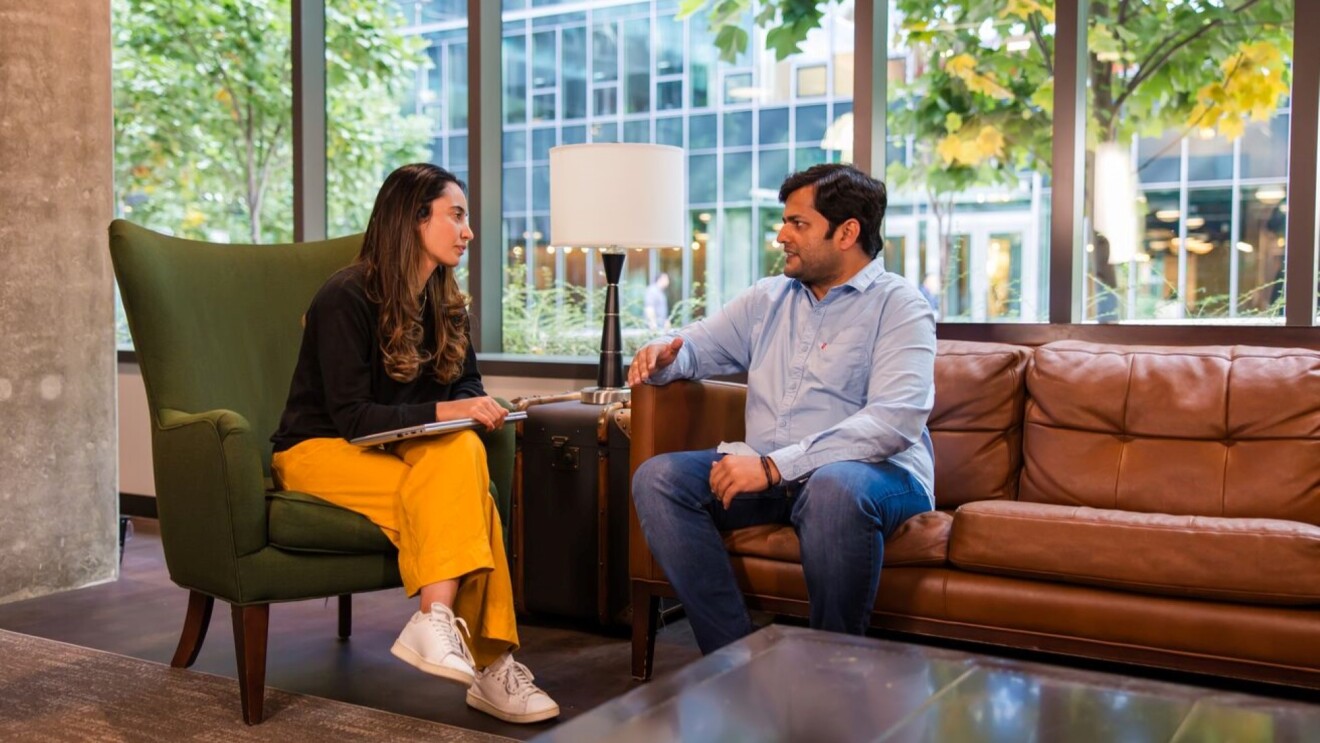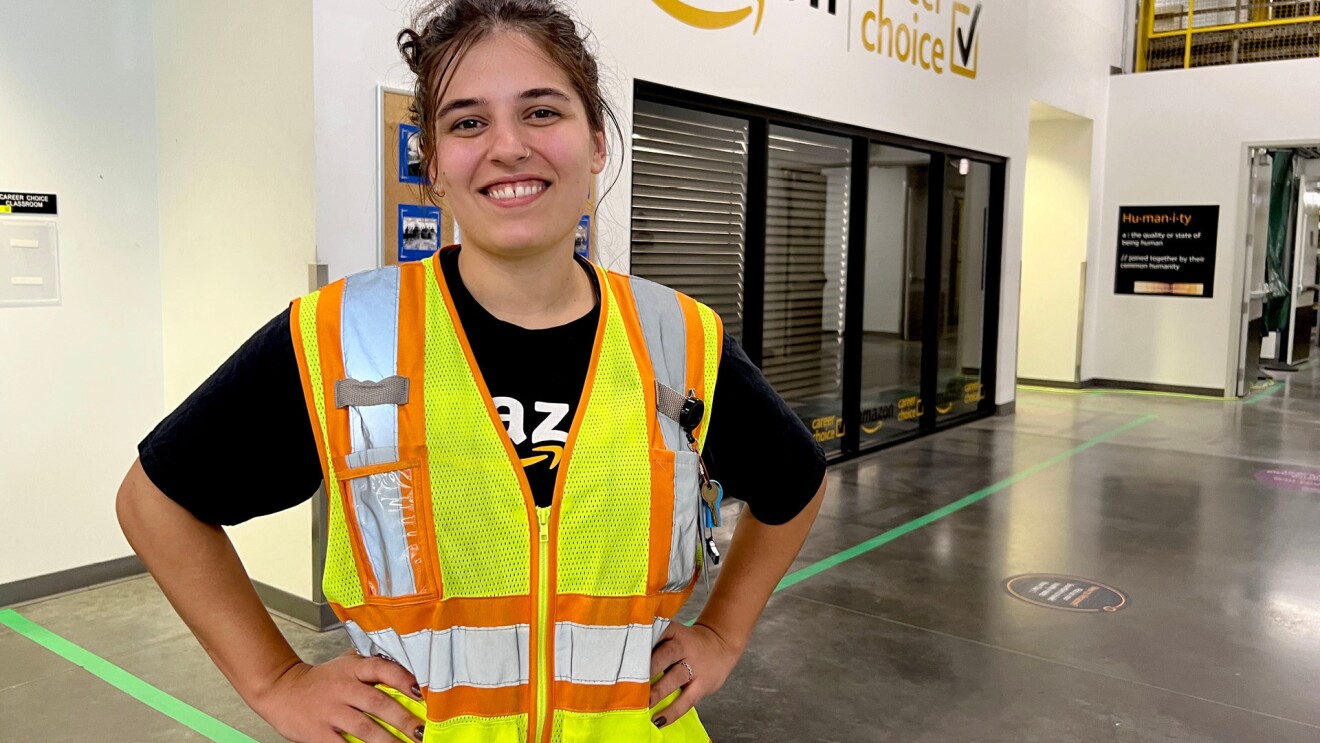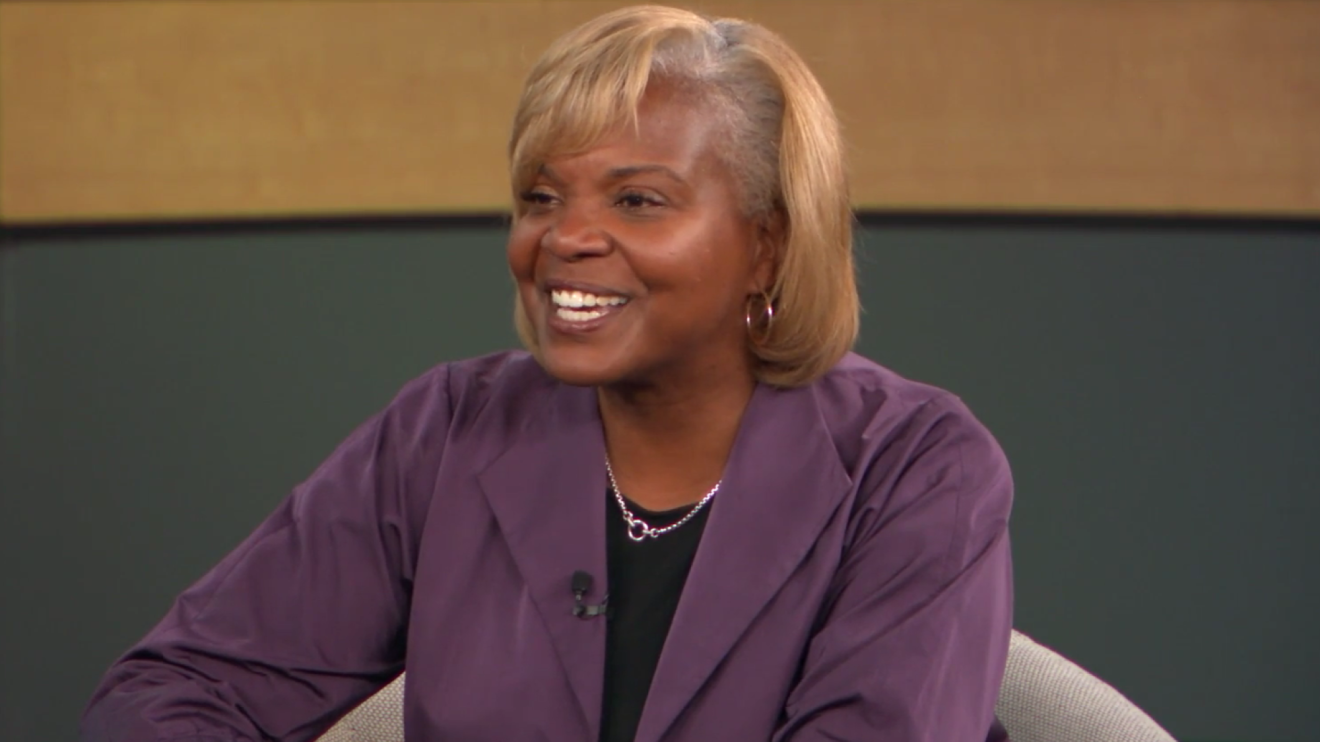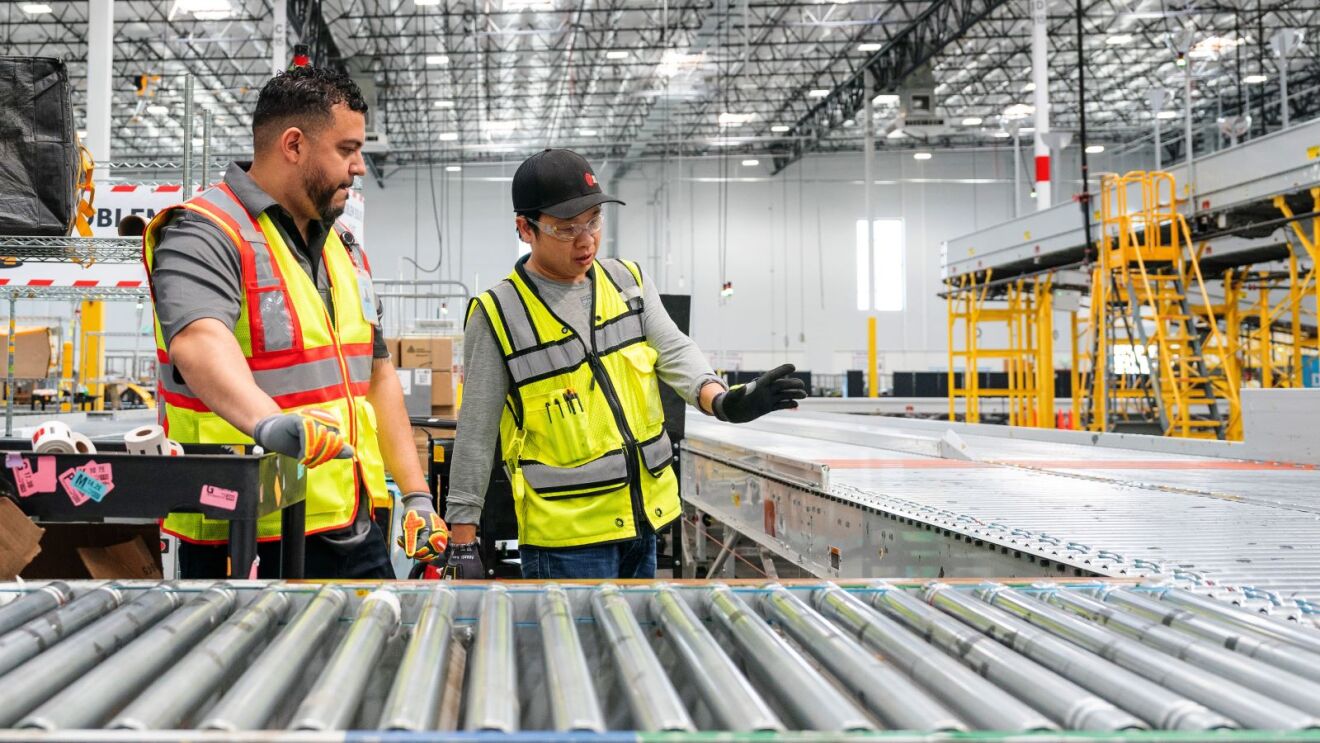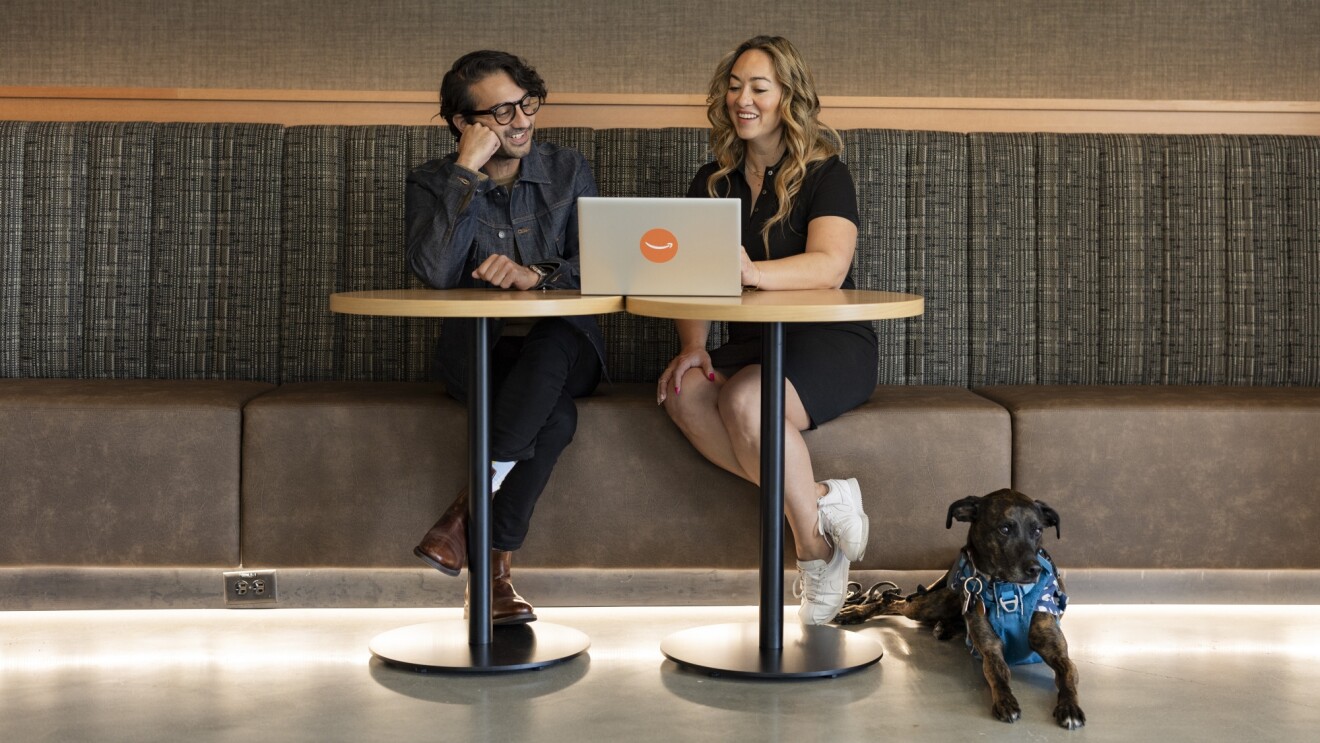Michael Forzano loves when his teammates ask him for help. There’s no ego involved – far from it. For Forzano, it’s the pure satisfaction that he is right where he belongs, writing code at Amazon.
“I do feel like I have to prove myself a lot in life,” said Forzano, a 26-year-old software engineer on the retail accessibility team. “But not at Amazon. People have been so open-minded here.”
Forzano has been blind since birth as the result of a genetic condition called Norrie disease. “I definitely had a pretty normal childhood despite my blindness,” said Forzano. “My parents always tried to make sure I was able to do the same things that anyone else would do.”
I remember when I told my mom that I got the (job) offer, she started crying right there on the phone.
Amazon software engineer Michael Forzano
Forzano also started losing his hearing at the age of five and uses cochlear implants to hear. As a teenager, he became interested in audio games, which are audio-based computer games, and taught himself how to program. He went on to Binghamton University, where he played sax in the pep band and earned a bachelor's degree in computer science.
Right out of college, he interviewed to become a software engineer at Amazon. He walked in the door, revealed to the interviewers that he was blind, and earned himself a job by impressing them with the code he wrote on his laptop.
“I remember when I told my mom that I got the (job) offer, she started crying right there on the phone,” said Forzano. At Amazon, he writes code that helps other teams make shopping on Amazon more accessible to people with disabilities.
Today, the New York native lives with his guide dog, Delta, in downtown Seattle, where he relishes his independence.
Erik Wang, a fellow software developer at Amazon, said Forzano "reads and writes code even faster than me. He has superpowers to spot flaws in the code.”
Forzano said he has a good “mental map of the structure of the code,” which allows him to help colleagues and provide unique feedback to his team.
“I feel really lucky to be here at Amazon, just being able to live the same kind of life that anyone else would. Not letting my blindness hold me back is really empowering.”
Forzano works on a standard laptop with screen-reader software, which translates every aspect of using a computer into audio cues.
“I think it's really important for other blind people to know what I have done,” Forzano said. “There are probably a lot of blind people out there wondering how far they'll go and what they will be able to do. I definitely do all I can to make myself available, as a role model, and let the world know.”
On becoming interested in computers (transcript): "So I got interested in computers when I was in high school. I knew a community of blind people online and some of them were developers, really just as a hobby not as a career. But one of them introduced me to programming, specifically programming games. I was very interested in programming audio games, which were basically games that use sound effects and are controlled using the keyboard and allow blind people to play them. I met this person who was a game developer and introduced me to programming, and I just took it from there and taught myself."
On his job interview at Amazon (transcript): "I sent in my application. I was interviewed on campus. They sent some developers out to do interviews, and I went in there not expecting much. I had not told them in advance that I was blind. I just brought in my laptop and said, 'Hey, I'm blind. Can I use my laptop instead of a whiteboard to write my code for the interview?' And they were like, sure no problem. So I did my thing and was extended an offer to come to Seattle. My parents are really proud. I remember when I told my mom that I got the offer, she started crying right there on the phone."
On coding (transcript): "At Amazon I work on the Retail Accessibility team. We build tools that help other teams who are building the features on the website to make sure that they are accessible to customers with disabilities. I know that my co-workers often ask me, 'Can you tell me how this works?' Because I have a pretty good mental map of the structure of the code and where things are and what part of the system this particular component is in, or the overall architecture of the system. I've got it in my head. I can tell someone how something works, where something is, whereas I feel like a lot of my coworkers are relying on white-boarding and drawing diagrams, which is pretty typical, I would say, for people with vision, because they are often visual learners, and just visually oriented people. I’ve never had that, so I've been able to, I guess, use my brain power to do things non-visually."
Trending news and stories
- How Amazon proved its new delivery drone is safe for takeoff
- Amazon makes it easier for developers and tech enthusiasts to explore Amazon Nova, its advanced Gen AI models
- LinkedIn names Amazon a top US company where people want to work for the eighth year in a row
- AWS is first major cloud provider to deliver Mistral AI’s Pixtral Large as a fully managed, serverless model


